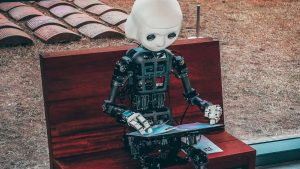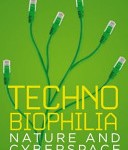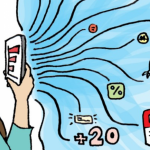Last week I got my first taste of participating in Being Human, the UK’s national festival of the humanities which celebrates humanities research through public engagement. The festival works in partnership with the AHRC and the British Academy, and is led by SOAS. I was invited to participate in a panel on The Future of Storytelling organised by Palgrave Macmillan as part of their campaign for the humanities.
week I got my first taste of participating in Being Human, the UK’s national festival of the humanities which celebrates humanities research through public engagement. The festival works in partnership with the AHRC and the British Academy, and is led by SOAS. I was invited to participate in a panel on The Future of Storytelling organised by Palgrave Macmillan as part of their campaign for the humanities.
Along with my fellow panellists, Professor Kate Pullinger (Bath Spa) and Jason Steinhauer (Wilson Center, USA) we were asked to explore what the future has in store for reading, storytelling and the ‘text’ in a world where visual media is increasingly dominant. Kate Pullinger focused on whether VR is literature and talked about her own creative practice as a novelist and lead for the AHRC funded Ambient Literature Project. Jason Steinhauer talked about his forthcoming book ‘History, Disrupted: How Social Media and the World Wide Web Have Changed the Past’ and provided some interesting critiques of what he described as our current obsession with storytelling. In my talk, I focused on the new opportunities for participation that the digital has offered for both writers and readers and how the pandemic has heightened interest in ways of creating and engaging with stories on social media and in virtual contexts. I also talked briefly about the work of the EPSRC GCRF funded DRIVE project, and how this has reinforced for me the need to ensure that discussions about the future of storytelling address issues of inclusivity and accessibility and engage with storytellers and communities too often underrepresented or completely excluded.
The panel was chaired by Dr Shafquat Towheed from the Open University, who is editor of the New Directions in Book History series and he offered some interesting insights on historical contexts for our discussions as well as drawing on his own research on contemporary reading practices and cultures.
The event was originally planned to take place in London but due to ongoing COVID restrictions we switched to a webinar format, meaning that over 270 people were able to sign up to the event, with around 120 participating on the night. Attendees were drawn from many different countries and we had some fascinating questions about multilingual storytelling and the global reach of VR technologies.
Being Human is an important showcase for humanities research, particularly demonstrating its breadth and the creativity of researchers in finding innovative ways of communicating their work and engaging with the public. At BU our newly formed Department of Humanities and Law along with the Narrative, Culture and Community Research Centre are testament to our strength in this field, and I hope that BU will continue to be involved with the festival in years to come.
 NRG Future Foresight Workshop with Sue Thomas
NRG Future Foresight Workshop with Sue Thomas BU research explores the use of comic artistry and storytelling in public health information
BU research explores the use of comic artistry and storytelling in public health information










 Second NIHR MIHERC meeting in Bournemouth this week
Second NIHR MIHERC meeting in Bournemouth this week Dr. Ashraf cited on ‘Modest Fashion’ in The Guardian
Dr. Ashraf cited on ‘Modest Fashion’ in The Guardian NIHR-funded research launches website
NIHR-funded research launches website MSCA Postdoctoral Fellowships 2025 Call
MSCA Postdoctoral Fellowships 2025 Call ERC Advanced Grant 2025 Webinar
ERC Advanced Grant 2025 Webinar Horizon Europe Work Programme 2025 Published
Horizon Europe Work Programme 2025 Published Horizon Europe 2025 Work Programme pre-Published
Horizon Europe 2025 Work Programme pre-Published Update on UKRO services
Update on UKRO services European research project exploring use of ‘virtual twins’ to better manage metabolic associated fatty liver disease
European research project exploring use of ‘virtual twins’ to better manage metabolic associated fatty liver disease